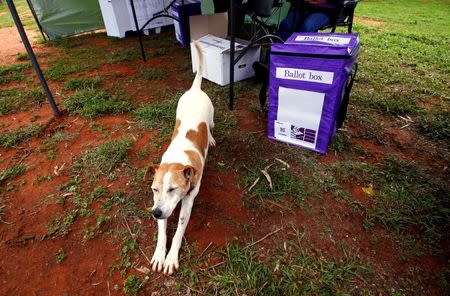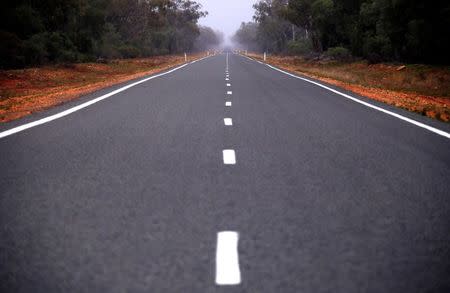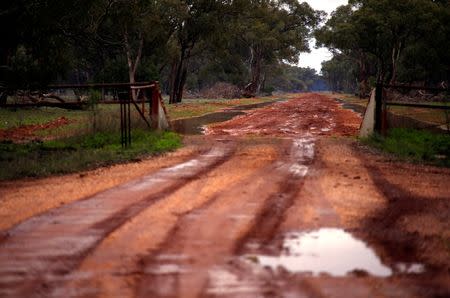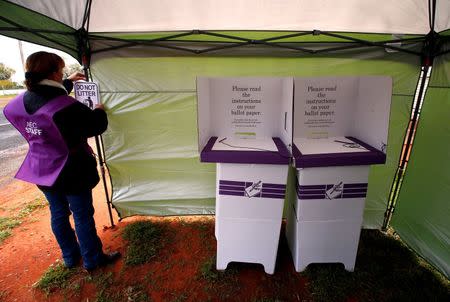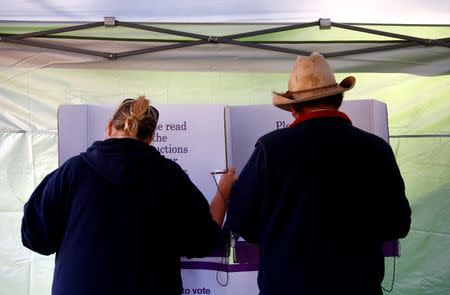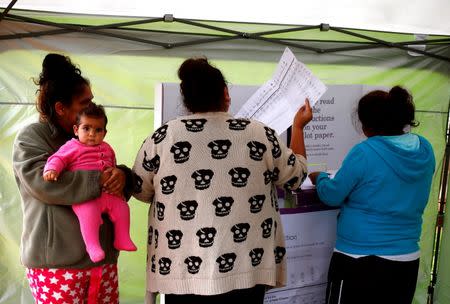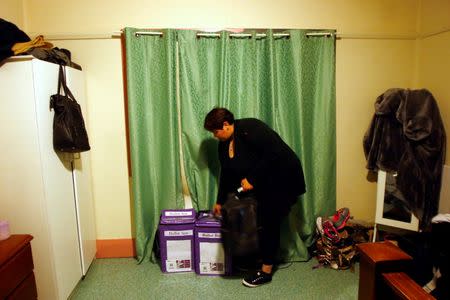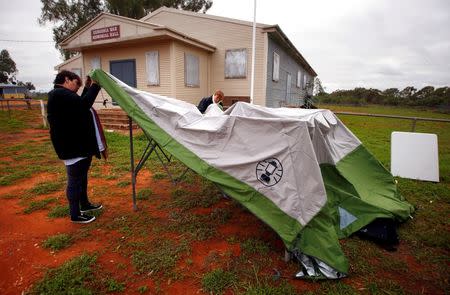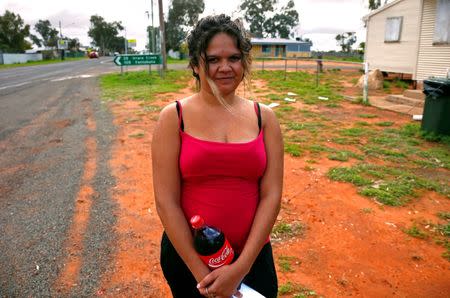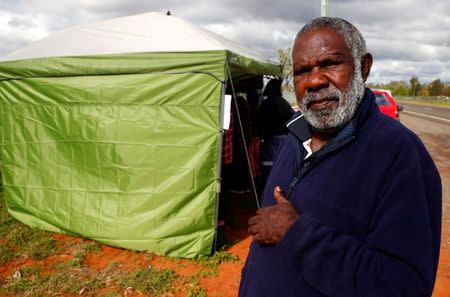Herding votes in Australia's outback villages
By David Gray ENNGONIA, Australia (Reuters) - Social worker Kelly Ann Mackay and goat farmer Heather McInerney have made sure even those in the most remote parts of the New South Wales outback get a vote in Saturday's Australian elections. The duo are one of three Australian Electoral Commission (AEC) teams that set up 10 temporary booths over a 393,473 square km stretch of outback that is home to 107,409 of the state's 5 million registered voters. The area makes up 48 percent of Australia's most populous state but postal services can be unreliable meaning Mackay, McInerney and co must drive thousands of miles to collect the votes. "To ensure people maintain their right to vote and access to vote we offer these circumstances," Erin Eames, Divisional Manager at the AEC, told Reuters. Similar teams work across other states in Australia, where voting is mandatory and more than 15 million people are enrolled. One temporary NSW booth was set up last week in Enngonia, a tiny outpost near the Queensland border, some 860 km (535 miles) north west of Sydney, where kangaroos heavily outnumber people. The two women have set up their green marquee tent on a dirt patch of park in Enngonia, whose few buildings include a pub, a school and a war memorial hall. Around 30 people submitted their ballots in the purple voting bag during the four hours that Mackay and McInerney opened the booth, which was also visited by curious dogs. Most Enngonia voters were worried about jobs. One said she didn't know leading candidates Prime Minister Malcolm Turnbull or rival Bill Shorten who are running neck and neck for office. Mackay kept all the sealed Enngonia votes in her room overnight until a courier came to collect them and take them back to the AEC base in the Australian capital Canberra. She and McInerney then set off for the next designated spot. However, heavy rains in the region have caused flooding and forced dirt road closures leaving some voters isolated and one AEC team stuck in a town for four days. With cars redundant, the AEC instead flew in to the villages of Wanaaring, Louth and the slightly larger Tilpa to ensure votes were collected. "It's not cheap but you can't put a price on democracy," Eames said. (Writing by Patrick Johnston in Singapore; Editing by Simon Cameron-Moore)
